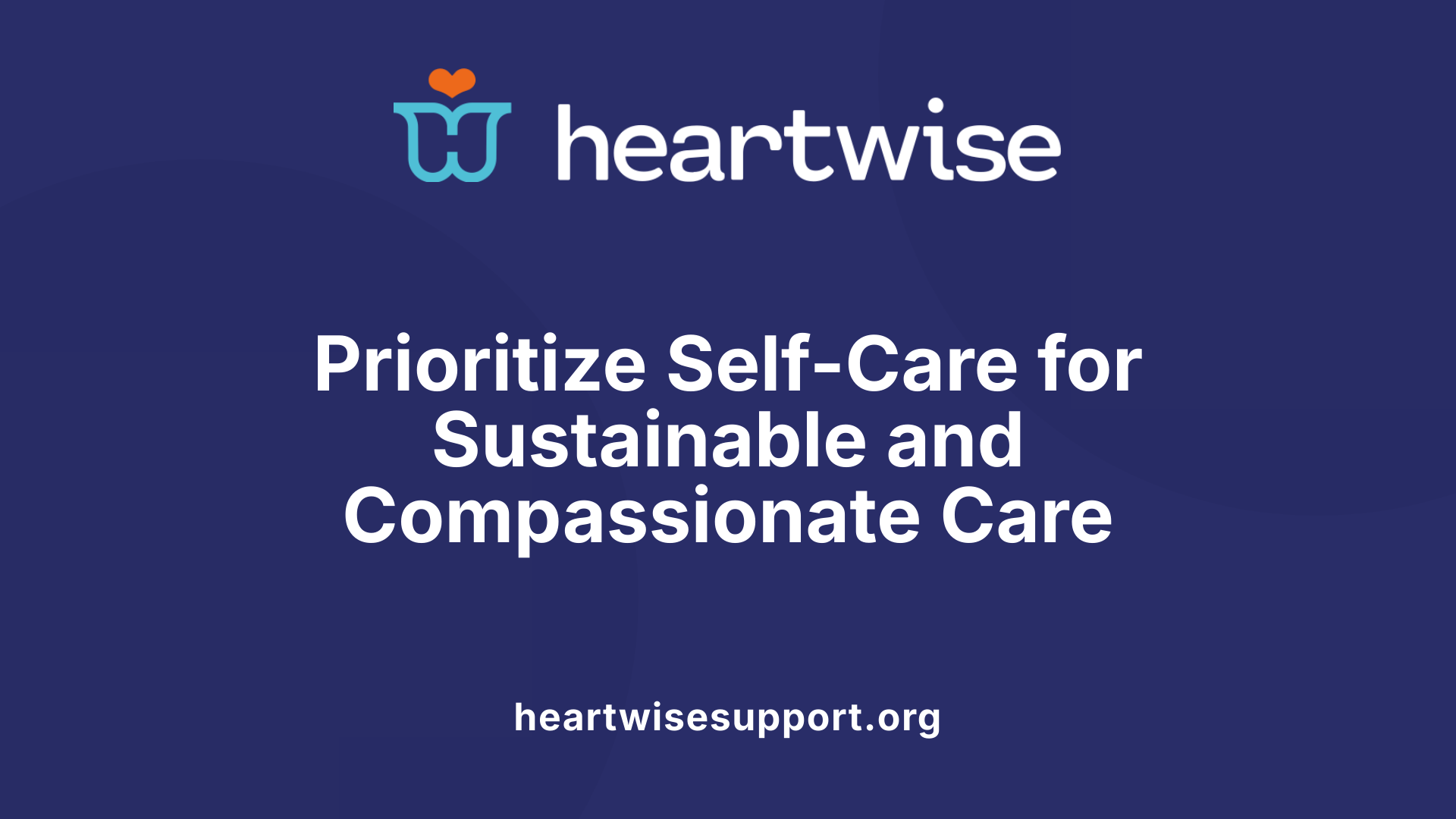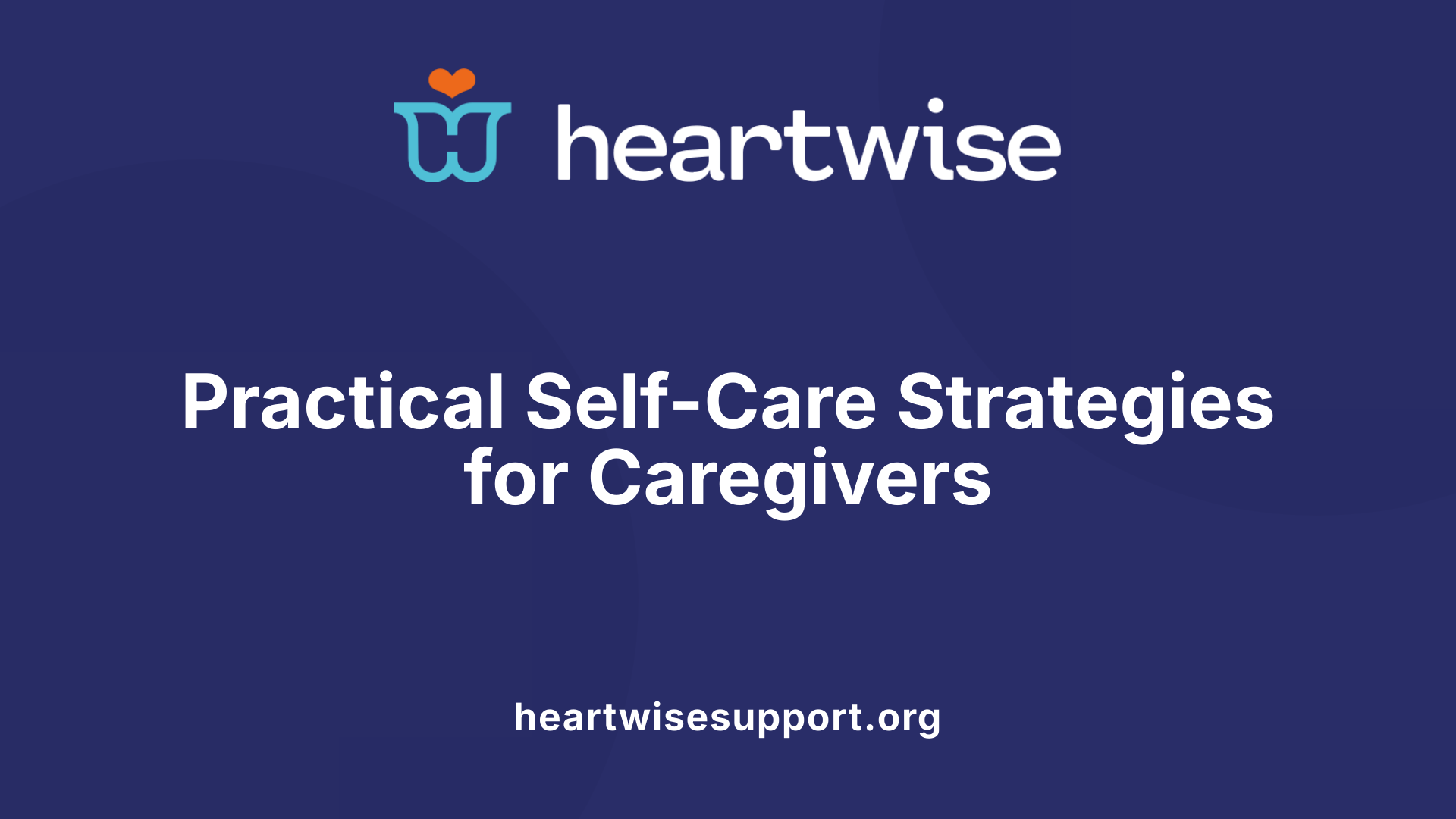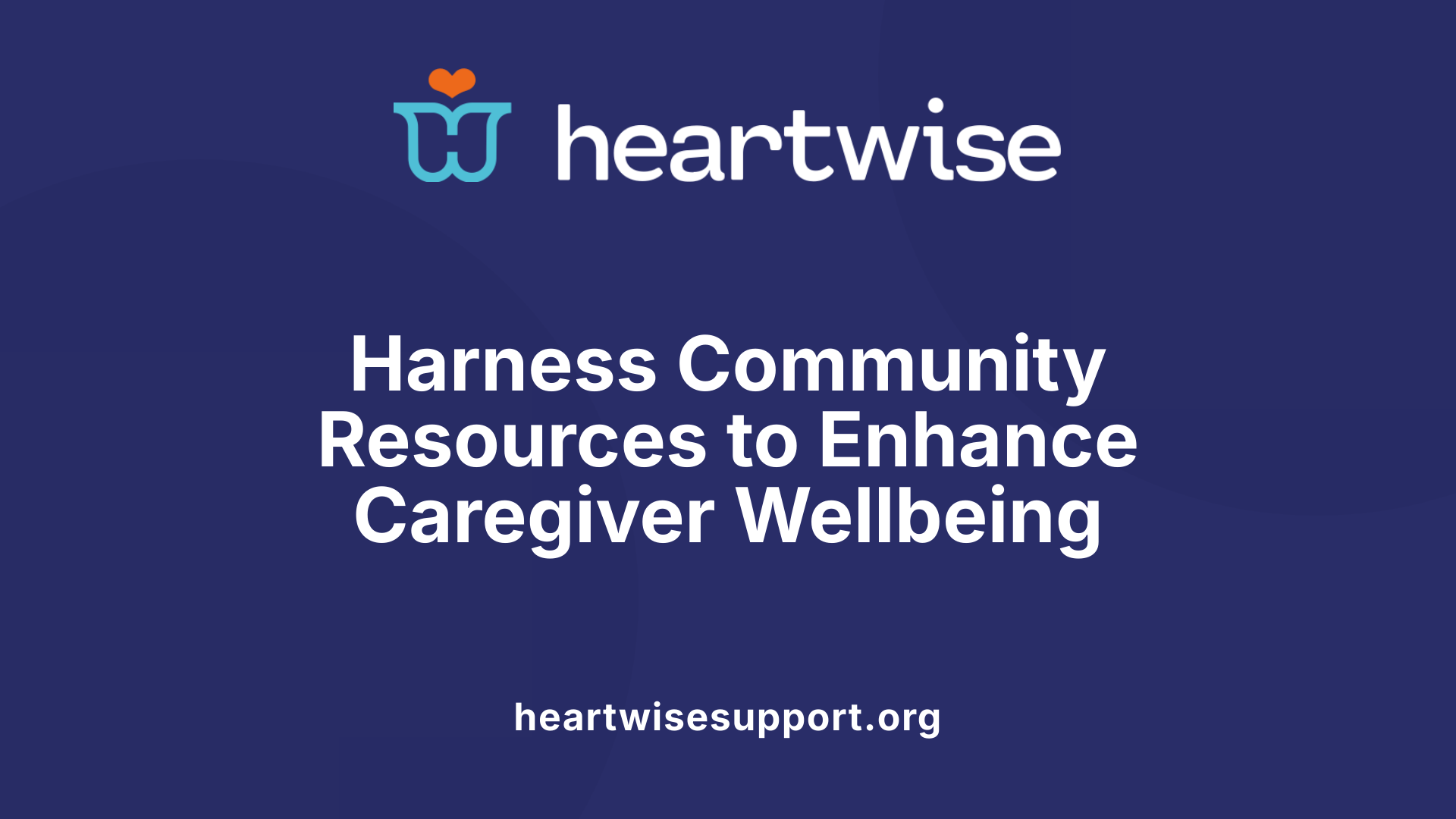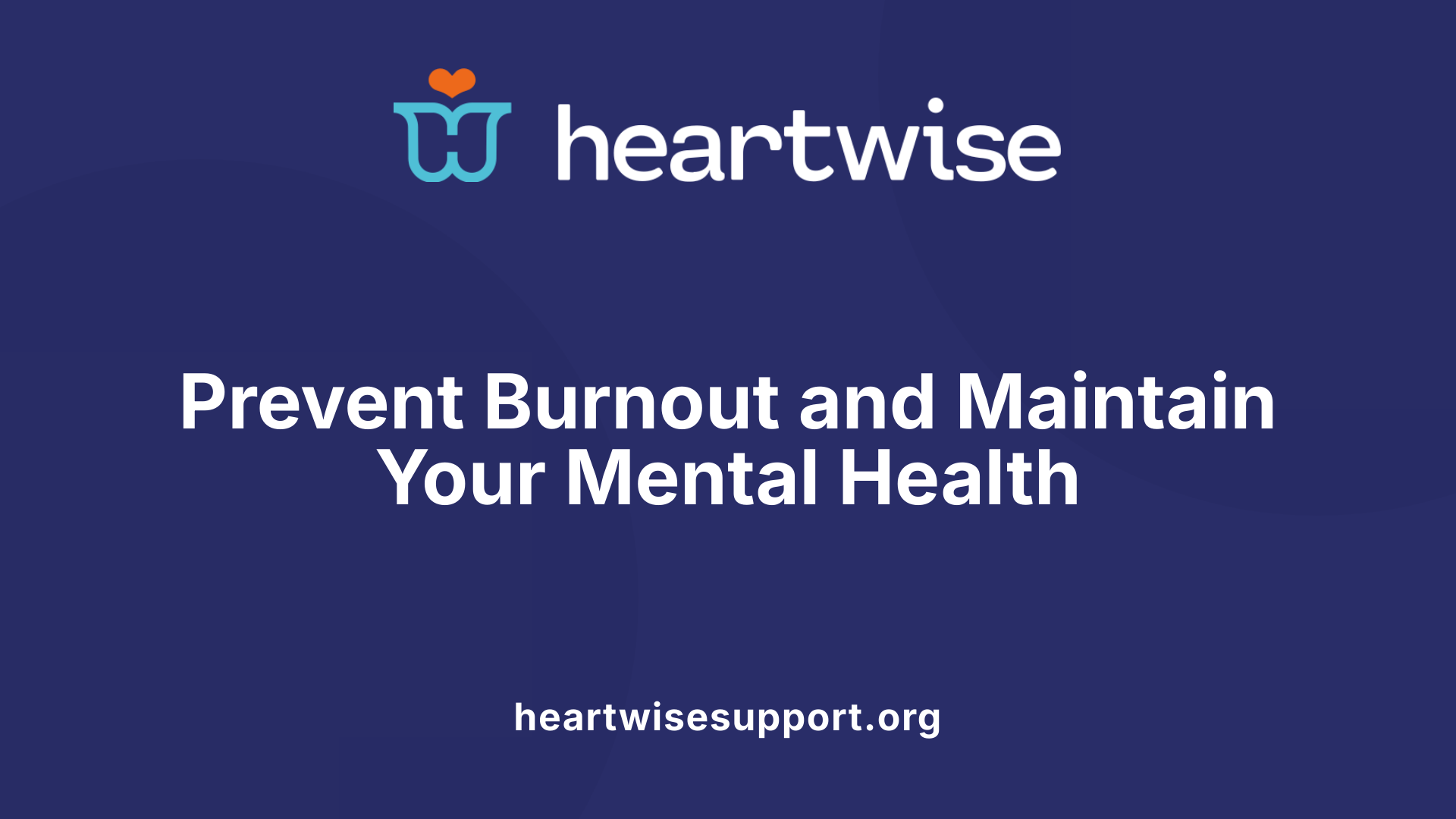Understanding the Critical Role of Self-Care in Effective Caregiving
Supporting caregivers' wellbeing through self-care is essential not only for their personal health but also for the quality of care they provide. Caregiving often involves physical, emotional, and mental strain, which can lead to burnout, chronic health conditions, and emotional distress. Recognizing the importance of caregiver self-care and implementing effective strategies can help sustain their resilience, promote emotional health, and prevent long-term health issues. This article explores the significance of self-care, practical techniques to maintain wellbeing, strategies to manage stress, and resources available to caregivers, emphasizing that caring for oneself is a fundamental part of caring for others.
The Importance of Self-Care in Caregiving

Why is self-care important for caregivers?
Self-care is essential for those who provide support to others because it directly influences their physical and mental wellbeing. Caregiving can be physically demanding and emotionally draining, often increasing the risk of chronic health issues such as high blood pressure, heart disease, and depression.
Engaging in activities like maintaining a balanced diet, getting enough sleep, practicing relaxation techniques, and seeking emotional support helps caregivers manage stress effectively. These practices prevent burnout, reduce feelings of exhaustion, and bolster resilience.
Neglecting self-care can diminish a caregiver’s capacity to care effectively, leading to health deterioration, emotional instability, and a lower quality of care. Conversely, prioritizing activities that promote health and emotional balance enables caregivers to stay strong, patient, and compassionate.
Regular self-care routines not only protect caregivers’ health but also improve their ability to stay present and provide attentive care. This mutual benefit underscores that taking time for oneself is not selfish but a necessary aspect of responsible and sustainable caregiving.
Effective Self-Care Strategies for Caregivers

What strategies can caregivers use for their own self-care?
Caregivers often put the needs of their loved ones before their own, but maintaining personal health is essential for providing sustained, quality care. Engaging in regular physical activity, such as walking, yoga, or light exercise, can boost both physical health and mental well-being. Incorporating relaxation techniques like meditation, deep breathing exercises, or mindfulness can significantly reduce stress levels.
Maintaining health through routine medical check-ups, ensuring sufficient sleep, and eating a balanced diet rich in fruits, vegetables, lean proteins, nuts, and seeds supports overall wellness. It's equally important to limit processed foods, sugars, and alcohol, which can contribute to fatigue and health issues.
Seeking external support plays a vital role. Caregivers should not hesitate to ask for help from family, friends, or support groups. Utilizing respite care services allows caregivers to take necessary breaks, helping to prevent burnout.
Furthermore, practicing self-compassion, setting realistic goals, and recognizing emotional responses such as guilt or frustration enable caregivers to replenish their emotional strength. Incorporating enjoyable activities, establishing routines, and focusing on emotional health build resilience. Regularly connecting with healthcare professionals, joining caregiver support networks, and engaging in hobbies contribute to a balanced, sustainable caregiving journey.
Supporting Caregiver Wellbeing through Community Resources and Support Networks

What resources and support programs are available for caregivers?
Caregivers can access a variety of community resources and support programs designed to help them manage their responsibilities and maintain their health. Support groups and peer networks offer emotional backing and practical advice from others who understand caregiving challenges. These groups can be found through organizations like the Caregiver Action Network, local senior centers, and hospitals.
Respite care services provide temporary relief from caregiving duties. This includes in-home help, adult day care centers, or short-term stays at nursing homes or assisted living facilities. Such services help caregivers take necessary breaks to rest and recharge.
Educational programs and skill training are vital for improving caregiving confidence. Many community agencies and nonprofit organizations offer workshops on managing medications, using medical devices, or dealing with behavioral issues. These programs aim to equip caregivers with the knowledge needed for safe and effective care.
Additionally, numerous online resources and helplines support caregivers psychologically and informationally. Websites like MedlinePlus, AARP, and the Administration on Aging provide extensive guidelines, tips, and forums. Helplines such as those from organizations like Samaritans or Carers UK offer immediate emotional support and advice.
Local programs, including VA Caregiver Support, Elder Service agencies, and specialists listed in directories like Eldercare Locator, connect caregivers with services like meal delivery, transportation, home health aide services, and adult day care. Many of these programs are low-cost or free, making essential support accessible for all caregivers.
In summary, whether through support groups, respite care, educational initiatives, or online tools, caregivers are encouraged to leverage available resources to enhance their well-being and improve the quality of care they provide.
Managing Stress and Emotional Challenges Effectively

How can caregivers manage stress and emotional challenges?
Caring for loved ones often brings a range of emotional and physical challenges, which if not managed properly, can impact caregivers' health and wellbeing.
One effective approach is recognizing early warning signs of stress. These signs include irritability, sleep disturbances, loss of appetite, mood swings, headaches, or feeling overwhelmed. Being aware of these symptoms allows caregivers to take proactive steps to address their emotional state.
Organizing responsibilities and setting achievable goals can reduce feelings of being overwhelmed. Breaking tasks into smaller, manageable steps and prioritizing essential activities helps caregivers maintain control and prevents burnout. Developing a clear, actionable plan also makes caregiving duties feel less daunting.
Utilizing relaxation techniques is crucial for managing stress. Deep breathing exercises, mindfulness meditation, yoga, tai chi, or listening to calming music can help soothe the nervous system. Incorporating these practices into daily routines provides moments of respite and emotional clarity.
Seeking professional mental health support is another vital component. Talking to therapists or counselors can offer coping strategies and emotional relief. Joining support groups allows caregivers to share their feelings, gain insights, and build a network of understanding peers.
Maintaining social connections with friends and family, engaging in hobbies, and ensuring regular physical activity contribute to emotional resilience. Remember, taking time for oneself is not selfish but essential.
By recognizing stress early, organizing responsibilities wisely, practicing relaxation strategies, and seeking support, caregivers can better navigate emotional challenges, leading to improved wellbeing for both themselves and those they care for.
The Role of Self-Compassion and Routine in Caregiver Wellness
What are some key elements of caregiving wellness?
Caregiving wellness involves multiple aspects that help caregivers stay healthy and effective. Physically, it’s important to maintain proper nutrition, stay active through activities like walking or yoga, and get enough sleep to restore energy. Recognizing early signs of stress or health issues allows caregivers to seek timely medical help and prevent burnout.
Emotionally, managing stress through relaxation techniques such as deep breathing or meditation is crucial. Sharing feelings with trusted friends, family, or support groups can alleviate isolation and emotional strain. Addressing emotions like guilt, anger, or sadness in a healthy way strengthens resilience.
Spiritual wellness offers a sense of purpose and meaning, helping caregivers find motivation and strength during difficult times. Social connections are essential; staying in touch with loved ones and participating in community activities provides support and reduces feelings of loneliness.
Structuring daily routines to include self-care activities, such as short breaks, hobbies, or listening to music, contributes to overall well-being. Accessing resources like respite care and counseling can offer necessary relief. Integrating these elements—physical, emotional, spiritual, and social—into daily life enables caregivers to maintain their health and continue providing compassionate care.
Preventing Burnout and Sustaining Mental Health

How can caregivers prevent burnout and maintain their mental health?
Caregivers face unique challenges that make them vulnerable to stress and exhaustion. To prevent burnout, it is essential to regularly engage in self-care activities such as incorporating physical exercise, eating nutritious meals, and getting enough sleep. These habits help sustain energy and emotional resilience.
Building a strong support network is equally important. Support from family, friends, caregiver groups, and healthcare professionals offers emotional comfort and practical assistance, decreasing feelings of loneliness and overload. Connecting with others who understand caregiving's demands can provide encouragement and valuable advice.
Setting boundaries and delegating responsibilities help manage the caregiving load. Caregivers should recognize their limits and share tasks when possible, avoiding overcommitment. Learning to say no and prioritizing tasks contribute significantly to mental health.
Recognizing early signs of stress, such as irritability, sleep disturbances, or physical symptoms like headaches, allows timely intervention. When stress becomes overwhelming, seeking professional support through counseling or mental health services is beneficial.
The availability of respite care options plays a crucial role. Respite services—such as in-home care, adult day programs, or short-term stays in care facilities—give caregivers needed breaks to rest and recharge.
Maintaining social connections with friends and support groups also enhances emotional well-being. Practices like relaxation techniques, mindfulness, and deep breathing can reduce stress, improve focus, and foster a sense of calm.
Staying organized with schedules and important information can lessen anxiety and help manage responsibilities more effectively. Overall, integrating these strategies supports caregivers in preserving their mental health while providing compassionate care.
Empowering Caregivers to Prioritize Self-Care for a Sustainable Future
The wellbeing of caregivers is foundational to the health and comfort of those they serve. Prioritizing self-care through practical strategies, community resources, and emotional support can significantly reduce stress, prevent burnout, and promote overall health. Recognizing personal needs, setting realistic goals, and maintaining open communication with support networks help sustain emotional resilience. Healthcare professionals, organizations, and caregivers themselves play vital roles in fostering environments where self-care is normalized and encouraged. By implementing these practices, caregivers can ensure their long-term sustainability and continue providing compassionate, effective care to their loved ones, creating healthier communities overall.
References
- Taking Care of YOU: Self-Care for Family Caregivers
- Caregiver Support: A Guide to Self-Care for Caregivers - Pfizer
- Self-Care for Caregivers | Patient Education - UCSF Health
- Caregiver stress: Tips for taking care of yourself - Mayo Clinic
- Self-care for the caregiver - Harvard Health
- Caring for yourself while caring for others | NIH MedlinePlus Magazine
- Caregiver Self-Care - Texas Health and Human Services
- Maintaining Health and Well-Being as a Caregiver Checklist
- Caregiver Well-Being | Memory and Aging Center - UCSF
- Caregiver Self-Care Checklist: Managing Stress & Support Groups











